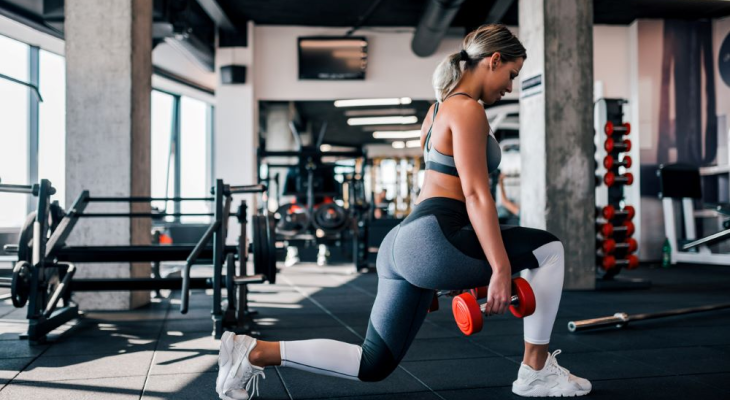Unlocking Your Brain’s Potential: Can Strength Training Boost Cognitive Abilities through Biohacking?

Can strength training improve your brainpower? David Wiener, Training & Nutrition Specialist for AI-based fitness app Freeletics, tells us all you need to know on strength training and biohacking.
Brain biohacking is a simple way to improve your mental health, cognitive abilities and overall function.
Exercise and strength training are two of the most effective ways to improve mental performance.
As we strengthen our biceps we can also strengthen and improve the flexibility of our brain.
Strength training and 70-150 minutes of physical activity per week, as an example, have been shown to improve mental health in subjects with mild cognitive impairment.
Exercise promotes a brain protein called Brain Derived Neurotrophic factor or BDNF
One possible hypothesis, which is still being investigated, is that exercise increases a brain protein called Brain Derived Neurotrophic factor or BDNF.
BDNF acts as a fertilizer for your brain, forming new pathways and reducing inflammatory marker. Strength training helps to build bone density, prevent diseases and correct postural imbalances.
This training style is also a great way to feel and look strong. It can improve your mood, increase your mind-body connection and form a positive body image.
Strength training is important for all ages, but it’s especially so as we age. Strength training is beneficial for everyone, but it’s especially important as you age.
READ MORE: HIIT Or Quit? Why HIIT is losing popularity
Strength training is a great way to boost your brain power. Strength training can boost your brainpower.
Squats #1

Squats can help you improve your strength and stability. Squats work many muscle groups from the calves, quadriceps, abdominals, and glutes.
Recent research has shown that squats can improve brain function. Three to five minutes a day, three times per week, is better than 30 minutes of exercise at a steady state, such as a jog or walk.
It is thought that this is due to blood flow to your brain. While squatting, your head moves up and down in opposition to gravity. Blood vessels act as shock absorbers and buffer blood pressure changes. This unique blood flow is thought to boost brain function.
Read more: London Marathon Inspired? Running tips: 8 great ways to get started
Planks No. 2

Planks have a special effect on our nervous system, which makes them a great way to improve your mood. They are thought to do this by stretching muscle groups which contribute to stress and tension.
Stress and tension can also cause physical strain on muscles and nerves. Planks can not only help calm your brain but also reduce anxiety and depression symptoms. But only if they are part of your daily routine.
Jumping Jacks #3

Jumping Jacks combine bodyweight exercise with cardiovascular exercise. They are often used as an exercise to warm up, but are also packed with brain-boosting abilities and power.
This increases blood flow to the brain. This gives your brain a boost of energy, which helps it to function without becoming tired.
Just ten minutes of this activity can improve your focus and brainpower. These activities are easy to do, require minimal space and don’t require any equipment.
Strength Training #4

It has been proven that using dumbbells, barbells, and kettlebells in conjunction with intense resistance exercises that require severe contractions can improve memory and reasoning, especially for those who have mild cognitive impairment.
Combining weight- and resistance-training exercises can improve brain power for people over 50. Systematic studies have shown a positive impact on memory, brain capacity, and alertness.
Exercises that increase brainpower include resistance training
Resistance training has a positive impact on working memory and executive function. When you lift weights you are really focused on your form and specific movements, which exercises the neural networks in your brain.
HEALTHISTA’S ANSWER TO MENOPAUSE; MENOSTART: PRESS PLAY, NOT PAUSE.
The Healthista Menopause pack is an online video workshop led by Dr Dawn Harper. It’s affordable, accessible, and covers all aspects of menopause for those in need.
This online resource, which includes information and advice from seven menopause experts who are respected in the industry, is designed to help women deal with common challenges and changes they may face before, during and after menopause.








